#berkeley city college
Explore tagged Tumblr posts
Text
June 1, 2024 -- one year under my belt

View On WordPress
#CACCsOurTimeisNow#NuestroTiempoEsAhora#OurTimeisNow#Bakersfield College#Berkeley City College#Calbright College#College of the Desert#Laney College#Napa Valley College#Nuestro Tiempo Es Ahora#Our time is now#Sacramento City College#Sonya Christian#West Los Angeles College#West Valley College
0 notes
Text
a bibliography for us Daniel Malloy freaks
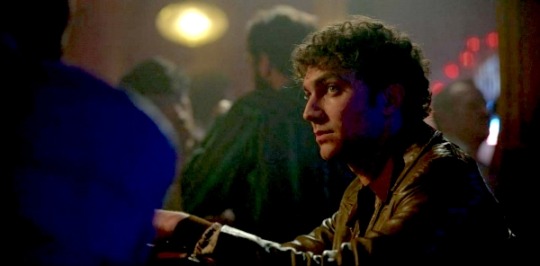
(a loosely pulled-together reading list about print journalism, New York, the 1970s & 80's, and the AIDS Crisis. Most of the credit goes to @islandbetweenrivers who started this)
On Daniel Molloy, California Boy
The show never explicitly states if Daniel went to college, but since college students were exempt from the Vietnam draft, which ended officially in 1973, it could be interesting to imagine Daniel in Berkeley.
Slouching Toward Bethlehem by Joan Didion
The White Album by Joan Didion
Berkeley Barb archives (link) -- weekly underground newspaper that ran in Berkeley between '65 to '80
The Daily Cal First 150 Years (link) -- student newspaper at Berkeley
On Journalism
Iphigenia in Forest Hills by Janet Malcolm
From her reporter's seat, Malcolm observes that a trial is merely "a contest between competing narratives". (Guardian review)
The Journalist and the Murderer by Janet Malcolm
“"Every journalist who is not too stupid or too full of himself to notice what is going on knows that what he does is morally indefensible," wrote Malcolm in an opening sentence that caused a sensation in the tiny, self-referential world of posh American journalism.” (Guardian review)
The Freaks Came Out to Write: The Definitive History of the Village Voice by Trisha Romano
“The Voice’s origins were proudly amateurish. One early contributor was a homeless man recruited from a local street; equipment consisted of two battered typewriters, an ink-splattering mimeograph machine and a waste paper basket for rejected submissions. Morale spiked when a staff member discovered that dried pods used in fancy flower arrangements contained opium, which was boiled up in the office when the time came for a coffee break.” (Guardian review)
Note: The Village Voice was THE alt-weekly newspaper and it was run out of Greenwich Village in NYC. Lots of incredible writers start there and then move onto the Times, Vanity Fair, etc. Very much the sort of crowd a young Daniel would be mixed in circa 70's and 80's.
The Night of the Gun, by David Carr
David Carr redefines memoir with the revelatory story of his years as an addict and chronicles his journey from crack-house regular to regular columnist for The New York Times. Built on sixty videotaped interviews, legal and medical records, and three years of reporting, The Night of the Gun is a ferocious tale that uses the tools of journalism to fact-check the past. (amazing rec from @archive-z)
Note: imagine if Daniel did this and then fact-checked his way into remembering that vampires existed
Rogues: True Stories of Grifters, Killers, Rebels and Crooks by Patrick Radden Keefe
Keefe can paint complicated portraits of victims and vigilantes alike while covering their lonely pursuit of justice. He intuits why a Dutch woman who has exposed the crimes of her gangster brother might lie about her present whereabouts. He understands why a man who lost his brother in an aeroplane bombing might spend the rest of his life trying to find the culprit. Again and again, Keefe surmises that even the most detailed of investigations can only speculate about human motives. (Guardian review)
Note: the sort of deeply human longform profiles that feels like the sort of writing Daniel does, based on his masterclass clip and what he reveals in his interactions with Louis
On New York, New York (in the 70s)
Notes from Underground, by Eric Bogosian + Perforated Heart, by Eric Bogosian
In four billion years the sun will explode. But before that we'll run out of fresh water and before that we'll all die of some mutation of AIDS that's spread by coughing. It's not my fault anyway. I can't think about this any more today. I'm going to masturbate.
Note: The OG. What else is there to say.
Ladies and Gentleman, the Bronx is Burning: 1977, Baseball, Politics, and the Battle for the Soul of a City by Jonathan Mahler
In the long sweep of American history, of course, 1977 is not exactly 1865, 1941, 1968 or 2001. Yet from porn shops to gay bathhouses, from Yankee Stadium to City Hall, from the blackout to Son of Sam, from Rupert Murdoch's New York Post to the rise of SoHo and Studio 54, the city was living through what Mahler convincingly calls "a transformative moment . . . a time of decay but of rehabilitation as well.” (New York Times review)
Remain in Love: Talking Heads, Tom Tom Club, Tina, by Chris Franz (2020)
Frantz’s account of the early days, when the Heads lived in the pre-gentrified Lower East Side of New York, an almost literal war zone. While searching for a loft to live in, they viewed one building that was on fire. One spring afternoon, Frantz walked over to the now-legendary club CBGB to ask for a gig. The place smelt of “beer, roach spray, dog doo [the owner, Hilly Kristal, had a free-roaming saluki] and Chanel No 5”.
Winter’s Journal, by Paul Auster
Note: To me, Auster is one of the closest real-life Daniel Malloy analogues: born around 1950, literary career in NYC, moved to Paris in the 1970s for a few years, troubled middle-class background. Novelist though, not a journalist. There’s an anecdote in this book about a car crash that feels like a deadass Devil’s Minion fever dream. Crazy stuff. One of my personal favourites
On the AIDS Crisis
And the Band Played On, by Randy Shilts
The book chronicles the discovery and spread of the human immunodeficiency virus (HIV) and acquired immune deficiency syndrome (AIDS) with a special emphasis on government indifference and political infighting—specifically in the United States—to what was then perceived as a specifically gay disease
The Journalist of Castro Street: The Life of Randy Shilts, by Andrew E. Stoner
Biography of Randy Shilts that’s very helpful for imagining Daniel in the early 1980s newsrooms covering Karposi’s sarcoma
How to Survive a Plague: The Story of How Activists and Scientists Tamed AIDS by David France (2017)
It’s not easy to balance solid journalism with intimate understanding of a subject, and even harder to write eloquently about a disease that’s killing your friends and loved ones. France pulls it off, in his own words (his description of finding a college roommate’s panel in the AIDS Memorial Quilt is heartbreaking) and in letting his articulate sources speak for themselves. (SF Gate review)
Timeline of AIDS (link)
Overview of HIV (link)
And some films, just for fun
The Panic in Needle Park (1971): Drama film directed by Jerry Schatzberg. Al Pacino is a heroin addict and small-time dealer in Manhattan who falls in love with another addict.
Serpico (1973): biographical crime drama film directed by Sidney Lumet. Al Pacino is a hippie cop (yes, I know, its part of the plot) with one foot in the 1970s bohemian art scene
American Graffiti (1973): teen movie set in 1973 Modesto ("I'm just a shitty kid from Modesto"--Danny Malloy)
The Taking of Pelham 123 (1974): More grimy 1970s NYC stuff
All the President’s Men (1976): THE ABSOLUTE JOURNALISM MOVIE??
Star Wars: A New Hope (1977)
Cruising (1980): 1980 crime thriller written and directed by William Friedkin. Al Pacino is a cop (again) but this time he goes undercover in NYC gay leather clubs
Almost Famous (2000): Set in 1973, it chronicles the funny and often poignant coming of age of 15-year-old William, an unabashed music fan who gets the chance to write for Rolling Stone
Spotlight (2015): More journalism movies! The true story of how the Boston Globe uncovered the massive scandal of child molestation and cover-up within the local Catholic Archdiocese
everyone say thank you to @islandbetweenrivers for starting this, I just polished up our google docs and posted it on tumblr.
Also if anyone has something to add please let me know!
#interview with the vampire#iwtv#daniel malloy#iwtv fic#im serious i think there's so much more we can add to this list
209 notes
·
View notes
Text
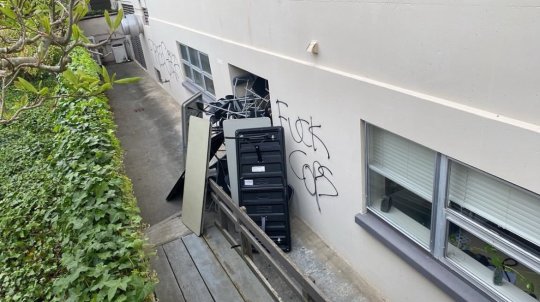
Barricaded doors at the occupation of a campus administration building in California State Polytechnic University Humboldt.
The occupation of Siemens Hall was established after a violent clash with campus and local police in Monday night. The students and community members occupying the building have stated that they have no plans to leave until campus leadership supports a permanent ceasefire in Gaza, and divests from companies that support the Israeli military.
Cal Poly Humboldt joins several college campuses across the U.S., including Columbia University in New York City, University of California, Berkeley, and the University of Southern California to occupy campus spaces in support of Palestine.
496 notes
·
View notes
Text
Academics and scholars have vowed to boycott Columbia University over its repressive policies against protesting students in shocking scenes that have sparked a wider student movement for Palestine across the US.
Over the past 24 hours, student encampments have mushroomed in colleges - on the east coast, in particular - with more anticipated to begin over the next few days. Middle East Eye is aware of at least two other universities that are planning similar encampments which have not been announced yet.
Student encampments demanding divestment from companies involved in Israel's occupation of Palestinian land and "genocide" in Gaza have popped up at the Massachusetts Insitute of Technology (MIT); Tufts and Emerson in Boston; New York University and The New School in New York City; Vanderbilt in Nashville, Tennessee; Yale University in Connecticut; University of California-Berkeley; The University of Michigan; Washington University in St Louis; and The University of North Carolina at Chapel Hill.[...]
The targeting of students, the attacks on academic freedom and the policing of speech at the university from administrators has also drawn condemnation from several academics and scholars with ties with Columbia.
On Monday, academic Marc Lamont Hill, presidential professor at CUNY, said he would be pulling out of his scheduled lecture from Columbia over the ongoing repression at the university.
Faculty at Columbia and Barnard College on Monday staged a walkout in support of students.
Hours earlier, the Graduate Center Program in English announced a full academic boycott of Columbia and Barnard College "until they reinstate suspended students and respond to their demands: transparency, divestment, liberation".
Several others have released public statements cutting ties with the prestigious university.
22 Apr 24
406 notes
·
View notes
Text

On May 1, 1947, Evelyn McHale, a 23-year-old woman, leapt to her death from the 86th-floor observation deck of the Empire State Building in New York City. Her death, immortalized by a haunting photograph, became one of the most iconic images of the 20th century and is often referred to as "the most beautiful suicide."
Evelyn McHale was born on September 20, 1923, in Berkeley, California. After her parents' divorce, she moved to Tuckahoe, New York, with her father and siblings. Evelyn joined the Women's Army Corps and was stationed in Jefferson City, Missouri, during World War II. After her service, she moved to New York City, where she worked as a bookkeeper at the Kitab Engraving Company.
Evelyn was engaged to Barry Rhodes, a college student and ex-GI who lived in Pennsylvania. The couple planned to marry, and by all accounts, their relationship appeared happy and stable. However, beneath the surface, Evelyn struggled with deep emotional turmoil.
On the morning of May 1, 1947, Evelyn visited Barry in Pennsylvania to celebrate his birthday. After returning to New York City, she went to the Empire State Building. She bought a ticket to the observation deck and, after spending a few moments there, climbed over the railing and jumped.
Evelyn's body landed on the roof of a United Nations limousine parked on 34th Street. Just minutes after her death, photography student Robert Wiles happened to be nearby and captured an eerily serene photograph of her body. In the image, Evelyn appears to be peacefully asleep, her legs crossed at the ankles, with one hand clutching her pearl necklace.
This photograph was published in Life magazine and quickly became famous. The haunting image, combined with the apparent calmness and beauty of Evelyn's repose, led to it being dubbed "the most beautiful suicide."
Evelyn left behind a suicide note, found in her purse at the observation deck. In it, she expressed her deep despair and requested that her body not be viewed or held in a public funeral. She wrote:
"I don’t want anyone in or out of my family to see any part of me. Could you destroy my body by cremation? I beg of you and my family – don’t have any service for me or remembrance for me. My fiancé asked me to marry him in June. I don’t think I would make a good wife for anybody. He is much better off without me. Tell my father, I have too many of my mother’s tendencies."
267 notes
·
View notes
Text
Love me like a sailor - Jessie Fleming x reader

A/N: a little bittersweet childhood sweetheart fic, now I've re-read it I kind of hate it and let's just say there will be a lot of angst coming - you've been warned
THIS IS A RE-POST AS TUMBLR IS HAVING A MELTDOWN
WC: 2k
Warnings: none atm
Synopsis: long distance is taking its toll on you relationship with Jessie
London, Ontario. You knew it well, why?
It was the city you'd grown up in, learned to love and where you now as a 26 year old adult resided. It was also the city you met your childhood sweetheart. Jessie or as most people knew her Jessie Fleming the captain of the Canadian women's soccer team.
You'd met Jessie when you were in kindergarten and since then the two of you had been inseparable. It wasn't until 9th grade though where you'd both realised your friendship was maybe something more, Jessie had been bold and made the first move.
It had been shortly after her debut for the senior team, at 15 years old it was a huge step for her. You'd gone to see her play and unbeknownst to you the feelings you had for the dark haired girl were also creeping their way into her, only the feelings were for you.
So there you were at the sidelines, back then the games weren't so busy but you held up a sign for her "Fleming is my hero" she came over and said hi, the freckled Canadian grinning from ear to ear.
Shortly after the game you found yourself sat cross legged on her bed watching some old movie you'd probably seen a hundred times, yet this time you felt different. Your gaze shifted to Jessie whose eyes were already trained on you, she gave you a soft smile and before you knew it her lips were on yours.
You reciprocated the kiss and in your teenage brain it felt like hours when in reality was more than likely ten seconds, that's where it all started though. The innocent touches, the shared looks until one day you decided to bite the bullet and ask Jessie to be your girlfriend and now here you are just over ten years later. Still loving that goofy lopsided smile and those big brown doe eyes.
The issue with London, Ontario though was that it wasn't Portland, Oregon which is where Jessie currently resided. That being said it was two and a half thousand miles closer than London, England which was where she had been for the past three and a half years.
Jessie playing across the border provided to be easier than when she was across an entire ocean. It mean't she could fly to you during off season, you could fly out to games especially the ones she played on the east coast. It was easier. There was no doubt about that.
Yet after graduating high school together and both going to college on the west coast of America yourself at Berkeley and Jessie at UCLA, then dealing with the time differences being on different continents, nothing felt as distant as it did now.
You always knew Jessie would go far and even though you both decided it was best for you to stay in your hometown to pursue your career it seemed to be eating at you more and more.
This is something you should probably bring up to Jessie, yet it never seemed like the right time. When you saw her you'd go to talk but something inside of you didn't want to ruin the precious time you did have together and then she would be gone again. However, over the phone also didn't seem like the best way to have this conversation. So you kept it to yourself.
That was until you visited Portland, Jessie had been there several months by now, however, you'd only managed to get out there a few times but it was better than nothing.
This time was different though, she was showing you some of her favourite places she had found since being in the city, one of which was a coffee shop on the river. As you walked in you took note of the way the barista who you'd soon come to learn was named Alex beamed at your girlfriend, her face slightly dropping as she clocked you and your fingers threaded through Jessie's. This didn't go unnoticed by you.
She greeted Jessie as you both came up to the counter and Jessie introduced you to her, telling you how Alex had helped her one day when she got caught in the rain and the paper bag with her groceries had split. They'd soon became friends and Jessie would frequent Alex's coffee shop, it seemed odd to you that Jessie hadn't mentioned her to you before.
As you turned to find a seat you noticed that the shelves in the shop contained some old cameras and some books, the layout of the shop and the items scattered is only what you could describe as a representation of Jessie's brain. You mentioned this to Jessie and she told you that's why she liked this place so much, her eyes then wondered over towards the counter where Alex was looking over at you both smiling. A pang of jealousy struck you in the chest.
Once you'd both finished your coffee Jessie suggested one of her new favourite walks that Alex had apparently showed her, you politely declined, feigning a migraine and asking to go back to her apartment.
Arriving back at the apartment you laid down on the couch on your front a pillow under your head as your arms stretched out underneath it, that's when you felt some soft material poking out from under the couch cushions. After a slight tug you find a flannel shirt, one you didn't recognise.
"Hey babe" you call out
"What's up?" Your girlfriend says walking over to where you lay.
"What's this?" You ask holding up the garment in question
"Oh" she scratches the back of her neck "That's Alex's, she must've left it here"
"What was Alex doing in your apartment? Much less leaving clothes?"
"She just came over one day after I'd finished training to bring coffee... she must've got hot and just left it here by accident" Jessie says almost questioning it herself.
"Right.." you say pushing yourself up so you're sat on the edge of the couch.
"What? You don't believe me?"
"It's just. Jessie, you seem real close with her. The way she was eye fucking you across the coffee shop, how her clothes are literally in your apartment. How you've never told me about her ever yet she seems to be a big part of your Portland life, it just doesn't make sense!" You say beginning to raise your voice.
"I didn't bring her up because I want to focus on you when we talk, she was certainly not eye fucking me and she's just been helpful since I met her"
"Yeah, yeah Jessie, you can't deny the way she looked at you" you yell at her
"You're out of your fucking mind!" She yells back
"I'm out of my fucking mind, clearly you are lying or just so stupidly naive if you don't think she likes you"
Your words are almost instantly confirmed when Jessie's phone lights up on the coffee table,
Alex💕: You still coming over after you drop your girlfriend at the airport tomorrow?
"And there we go" you say gesturing to her phone
"Wow, we are really doing that huh?" She says handing you her phone
"Go on look through our messages" she huffs at you rolling her eyes
"I'm not saying I don't trust you Jess, I'm saying I don't trust her" you place her phone back on the coffee table.
Running your hands through your hair you don't know where to look, settling on the ground you can't bring yourself to look at her.
"She's just a friend, even if she does have feelings I promise you I don't" she says tilting your chin to look up at her.
Begrudgingly you make eye contact with her, deep down you know she's right. Jessie could never cheat on you... could she? You shake your head dismissing that thought.
"You're right, I trust you Jess. It's just been hard you know? You've been so far away for so long and I'm not one hundred percent sure how I can keep doing it" you let out a sigh feeling relived you addressed your feelings.
"Right... so what does that mean for you? For us?" She narrows her eyes slightly somewhat taken aback by your statement. It wasn't that Jessie hadn't also felt the strain and had begun to have those questions herself, it was more that she hadn't even thought about you feeling the same.
"I'm not sure, I love you Jess, I always will but it's just not felt right for awhile" you say your chest tightening
"I see, I love you too but you're right it's been hard, what should we do?"
"Maybe, maybe we should take a break. See how we are in a few months from now?"
"And if we are meant to be, we will be?" She says sadness seeping into her voice
"So, this is it?" You ask tears brimming in your eyes
"This is it" she repeats back to you.
"For now" she follows up.
-
Before you knew it you were on the plane back to your hometown, Jessie still in Portland. Your conversation last night ended with the mutual decision to keep contact to a minimum whilst you both figure things out.
You'd gotten on the plane with a book and some music downloaded on your phone, the way you'd kill the next few hours instead of enduring crying babies and staring at the seat ahead. That all went out the window though when a girl in the seat next to you was struggling to put her luggage in the overhead bin.
You being the kindhearted person that you were you'd decided to give her a hand, helping her cram her baggage in as she slammed down the bin door. Only she ended up knocking your phone out of your hand which came crashing down in the aisle.
She was so apologetic but that didn't help the fact you now had a broken phone and a six hour flight with nothing but yourself and your thoughts.
This gave you time to think about your relationship and your own life. You'd been with Jessie for all of your adult life and half of your teenage years, the time you had made you realise how you didn't know who you were without her, this break would be harder than you first thought.
You loved Jessie, you really did. Just for now you knew you needed to see who you were and what your life was without her.
After several hours of your mind ticking away back and forth between if you made the right decision or not, how you felt and if you should've just stuck with it you finally exit the aircraft making your way to the luggage carousel. As you turn to take your luggage you see a pair of feet in front of you and hear what sounds like someone gasping for breath.
"Oh hi" you say slightly surprised at the disheveled girl in front of you, the same girl from the plane.
"Sorry, it's just, I... hold on" she pants out
You stay still your gaze steady on her whilst she regains composure.
"I, I'm sorry about your phone. I couldn't let you go without apologising again and.." she rummages in her pocket pulling out a crumpled napkin with the airline logo stamped on it.
"This is for you" she says handing it to you
"Your dirty napkin?" You question confused.
"No, open it" she laughs
You do, looking up meeting her eyes a confused look still plastered on your face, eyebrow slightly raised and head cocked.
"What, what's this?" You ask
"My number silly" she giggles to herself lightly before carrying on "when you get your phone fixed, call me or text me and we can grab coffee or something and I'll reimburse you for the damage"
"I don't expect you to do that"
"It's nothing really!" She insists
"Well I'll agree to the coffee but don't worry about anything else" you bargain with her
"Deal" she shakes your hand "It's a date"
Those three words replayed in your head the rest of the day.
#woso#woso x reader#jessie fleming#jflem#wofo#woso imagine#portland thorns#women's football#women's soccer#canwnt#jessie fleming smut#jessie fleming fic#jessie fleming imagine#jessie fleming x reader#jessie fleming x y/n#canada women#canwnt x reader#woso smut#women's soccer fiction#women's football fiction
128 notes
·
View notes
Text
dpxdc drossover not phantom planet complient, Jason attacks titans tower AU , good fenton parents - link to AO3 if you'ld rather read there https://archiveofourown.org/works/53359585
------------------------------------------------------------------
Danny was flying over the bay in Jump city. The Fentons were on a road trip - Jazz was in the process of picking what college she wanted to attend, and since Phantom was no longer a secret from his parents, and he had passed his portal making test from Wulf, rather than have to fly, or drive around the country, he was making portals and visiting each college.
The downside of this was that the portals were a little wibbly wobbly with time. Hey - he only just passed the test - So sometimes the portals would drop them off in a location a few days before the open day (Fortunately for Jazz’s remaining sanity, he hadn’t yet arrived too late for an open day, but with four left to go there was still a chance).
Since mom and dad now knew about Phantom, They were taking the opportunity to drag the whole family around the country, to every college Jazz was looking at (and with neither time or travel being a concern, she was looking at A LOT), and having a few days around the town afterwards, seeing the local sights as well. So they were in Jump City for a few days before Jazz went to see UC Berkeley: and Danny couldn’t sleep.
Or at least that's what he told mum after persuading her he would be fine to go for a quick invisible flight before bed.
Invisible of course, because Jump city was home to the teen titans - a local group of teenage superheroes - and the last thing he needed was to be noticed by them. Not that he had anything against superheroes - technically he was one - but Amity had been under media blackout since before the titans were formed. It was only after Tucker had managed to crack the media blackout - and get a quick message out to the justice league helpline about the GIW and the Anti-Ecto- Acts, that Danny had even realised there were other teen heroes.
That had been a very hectic few weeks. The GIW were quickly disbanded, and it turned out the AEA which Danny had been so afraid of, were a load of bull! They never existed! As the Justice League explained, with the Meta Protection Acts so much in the public view, there was no way any Acts that labelled those with unusual powers as not sentient - was ever going to pass. It was just a lie the GIW put about to prevent Amity Parkers from asking for help.
The Justice League had also told mom and dad they had to permanently close the portal, or at least have much, much more security to prevent ghosts coming and going as much. They eventually agreed to this, with a lot of grumbling, and it was one of the reasons that Danny needed to learn to make portals so quickly. Mom and dad told the justice league that, as Amity Park had so many natural portals anyway - that opened up from time to time - they would need to open it occasionally to send the ‘visitors’ who came through the portal back home. But the justice league argued that should be the only reason to open the portal.
Dad kept arguing that how were they supposed to research ghosts (no longer for ripping them apart molecule by molecule - as learning about their son being Phantom had changed their ideas massively) - and how they interact with each other and the world - with the portal only open for emergencies. Until Mom sidled up beside him and whispered that “Danny can still open portals if needed dear” which shut dad up so quickly that the justice league member - John somebody - looked at him suspiciously - and then went outside for another smoke. Eventually it was settled, with mom volunteering to supply the justice league with some anti-ecto technology - particularly specter deflectors, because no-one wants an overshadowed superman.
Anyway, after all the portals and GIW were sorted, the Justice league made some noise about this Phantom ghost - and they needed to meet him and assess what to do. The public of Amity Park were (as always) mixed in reviews, but Valarie, who had already met up with the League when they arrived, as Red Huntress, said very publicly that “As the local hero of Amity, I will make sure he doesn’t bother the public”. Then, more quietly, to the league “... besides Phantom really only stops the other ghosts from causing trouble, and with the portal shut there should be less of that.” And finally, lying through her teeth, “If there’s any trouble, I'll call you guys in”.
The Constantine guy hung around for a few more days, but since there was no sign of Phantom, and the only ghost that came through a natural portal, was an animal ghost, that was easily souped by Red Huntress. Constantine watched as it was yeeted back into the Ghost Zone - and eventually left with only mild complaining.
Now Danny, why did Phantom not appear? Well, since the beginning of Phantom appearing, he really was only a hero to stop people getting hurt. He didn't want to be a hero. He just wanted to stop the ghosts coming through the portal. Since Val was there to deal with the Justice league, and they were now getting on fairly well because of Dani, she could be the ‘Hero of Amity Park’ and she had his number to give him a shout if needed. That way he could actually get his grade up high enough to have a chance of attending a decent college to be an astronaut.
So with that all sorted, and ghosts now more of an occasional thing than a day to day problem, he was able to leave Amity Park and actually go on holiday! Besides, if he got bored and wanted a fight, he could now portal to the GZ, grab a frenemy- and duke it out without any collateral damage. Frostbite and Clockwork had both said, one much more plainly than the other, that ghosts - particularly young ghosts like Danny, Dani, and even Vlad - who was young by ghost standards, would start to go a bit mad without regular enrichment. Apparently enrichment for ghosts was beating the stuffing out of each other.
This did explain why Vlad was so much of a fruitloop - being confined to a bed for many years, and then not having anyone he could brawl with - left him badly lopsided. It turned out that regularly punching him in the face was good for the both of them. Left him less mad, and was very, very cathartic for Danny. Vlad these days was still a fruitloop, but tended to leave humans out of it, and just kidnap Danny for various jigsaw-ish traps - with given that Danny could use his powers, was more like a fun escape room than anything more dangerous.
So, back to the evening flight in Jump City. Danny had carefully talked around Titans tower. He said he would make sure that the heroes wouldn’t see him - well he was invisible, so they wouldn’t. But he did want to see how the other side live, as it were. He wanted to see what these teen heroes were doing. If they were getting support from adult heroes, as Danny had desperately needed when he started, and now, thankfully had - but only after going through a ton of stuff alone. Well, not alone, but certainly without adult help.
But mainly to see what the inside of the tower looked like. And maybe take some pictures for Sam and Tucker - to prove he’d been there.
As Danny approached the tower, he didn't see anyone through the window in what he assumed was the common area, the lights were dim, it looked like the heroes were all in bed. Bit early for teens to be in bed, but maybe they had a big fight today, not like he follows the news or anything. Danny double checked he had a tight grip on his invisibility, and phased through the window.
He flew around the common room, poked his head into the kitchen, and started drifting down the corridor. He didn't really care for the common area, though it was quite big, and he took a snap to show Sam and Tucker, but what he was really looking for was a control room type thing. A briefing room? A round table? He wasn't quite sure, something Hero-y. He drifted down the hall, and stopped.
What was with that door?
It was an automatic sliding door, but it was stuck - open. It can't have detected him - he was still intangible. There was no movement to detect, the air was going through him. Like there was an electrical fault? Huh - broken door - fair enough, rough housing superheroes could defo break a door. Probably hadn't been fixed yet. He drifted through.
This level looked like bedrooms, probably some degree of privacy violation to peek, and he’s already entered without permission. Best leave that alone just in case, don't want to get an eyeful of something. Snooping in communal areas is fine. Like technically trespassing, but no-one really cares - looking in the bedroom is a lot weirder.
He phased down a couple of floors - Sick, training room. Taking photos for Tucker, man this place would make Dash weep with envy. Pretty much every fitness machine Danny had heard of, then like a dozen more. Big flat area in the middle for sparring? Probably. Most people can't just spar mid air afterall.
Danny jumped so much he went up to the floor above - that was a shout. Had someone seen him? No, his invisibility was still on. Now that he had noticed it, he could still hear the shouts, a few floors below - someone was having an argument. Best avoid that then.
Next was a sound of pain, unmistakable that was the sound someone made after being punched. Surely if it was a spar, that would stop now right? Except, Danny was on the gym floor. With the sparring area. And there was no-one there.
Danny drifted slightly closer to the sounds of what was now quite obviously a fight. Down a few levels, and his ghost sense went off. But then didn't. Like it started then changed its mind. Danny flew down to the fight entirely now - how on earth was a ghost in Jump City! He didn't even have a thermos on him, it was back in the hotel room. He was going to have to make a portal and yeet the ghost through! There was no way the heroes wouldn't notice a portal appearing in titans tower! This was going to completely blow his cover. Damn it!
Some Guy was wailing on some other guy. What? Danny doesn't know who these people are, for all he knows these guys both could be villains that broke in and then got in a disagreement. But the larger guy was setting off his ghost sense, and had glowing green eyes. And the smaller guy was definitely still a teen, so by process of elimination was probably one of the teen titans. Without thinking Danny lifted the phone he was holding and took a photo - the flash on the camera started the two into stopping for a moment.
Danny dropped his visibility and swooped in.
“And, time out. Ring ring ring, back to your corner meathead, he’s already down” He pulled the bigger guy away and pushed him back a few feet.
He got snarled at for his trouble - green glowing eyes, and angry to the point of non verbal. Overshadowed human maybe? Well, time for a real estate battle then. Danny phased into the big guy - he was an expert at kicking other ghosts out by now.
Except he couldn’t - because there was no ghost to kick out. The anger was all coming from the human - so a human full of ecto, and really cross about it, and trying to deal with it the way ghosts do - with a big fight. Except he’s fighting humans, who are nowhere near as durable as ghosts, so he’s just beating up a kid.
Ok - Danny is going to have to take over. He leans part way out of the guys, who roars again, and high fives the teen who just stood up.
“Tag, I'm in. I'll bring him back when he’s no longer incoherent with rage. Bye for now”
Danny then flew with the guy out through the side of the building to find a nice empty bit of land for a fight. He’d be back to the hotel late tonight, he hoped mom wasn't waiting up.
—---------------------------------------------------------------------------------------------------------------------
Tim looked at the empty wall that Hood had just been kidnapped through.
“Did he just take a photo? That's My thing!”
208 notes
·
View notes
Text
Editor’s Note: Sanne DeWitt is a microbiologist, geneticist, researcher, and author of a memoir: “I Was Born In An Old Age Home”. She has lived in Berkeley, California since 1957, where she moved for advanced studies in microbiology and genetics, and worked there until her retirement. The views expressed here are those of the author. View more opinion on CNN.CNN —
In 1957, I moved to Berkeley, California: a bastion of American liberalism that squarely aligns with my progressive values, and a hub of American scholarship that nurtured my academic quest and professional growth. I came here for advanced studies in microbiology and genetics. Since then, I have lived, worked as a scientist and retired in this community.
Over the 65 years that I have called this beautiful area home, I have occasionally encountered antisemitism, but these one-off incidents never succeeded in destroying my spirit. When I was four years old, Nazis burst into my bedroom and sent me and my family to Dachau, the first Nazi concentration camp. We were soon released and I was smuggled out of Germany by a Christian woman. After this harrowing experience, not much in the Bay Area could scare me.
But since the October 7 Hamas attack on Israel, the hatred towards Jews that I have seen in Berkeley terrifies me more than anything I have experienced while living here. I am still reeling from being called a liar at a Berkeley City Council meeting, where I asked for a proclamation to mark Holocaust Remembrance Day and spoke about October 7. The Jews at that meeting were circled and called “Zionist pigs” by menacing protesters.
We are approaching the holiday of Passover, which commemorates the freedom of the Israelites from Egyptian slavery and our formation as a free Jewish people in our own land. But this Passover is like no other in recent history, with scores of hostages still held in Gaza and Jews worldwide fearful for our future — including Jews in the US. We are facing the worst global antisemitism since the Holocaust and while it is not state-sanctioned as Nazism was, it is a threat going unchecked in California’s East Bay.
It is incredibly painful to see my neighbors vilify Jews, tear down posters of Jewish hostages in Gaza and not believe Jewish rape victims. In this hotbed, hatred and hostility have become normalized. Families have moved their children out of public schools. Jewish businesses have been vandalized and boycotted. And lies about Jews and Israel have gone unchecked and unchallenged in our public forums. Our local Jewish community is both horrified and petrified.
This onslaught of Jewish hatred cannot become the new normal. This epidemic must be treated as seriously as all other hatreds that our society is confronting, such as racism and homophobia. We need more education about Judaism and how the long, sordid history of antisemitism ties into other forms of hatred in our public schools.
We need colleges and universities to unequivocally denounce hate speech and actions directed at Jews. We need public officials to urge mutual respect, understanding and civil discourse during city council and town hall meetings.
I have seen where unchecked antisemitism can lead, when people will do nothing — or worse, join the mainstream, such as our German neighbors during Nazism. This Passover, I resolve with whatever time I have left in this world to fight for the safety of the Jewish people, in Berkeley and around the globe.
During Passover, we are commanded to tell the story of the exodus out of Egypt to our children. We believe in the lasting power of sharing this history with younger generations and reflecting on this hopeful new beginning. There is also lasting power in sharing my history as a Jewish refugee — and I invite my Berkeley neighbors to hear my story. Without understanding and acceptance, we are enslaved by our biases.
The hatred, violence and bigotry against the Jewish community cannot continue — for our shared future, we must confront it and root it out.
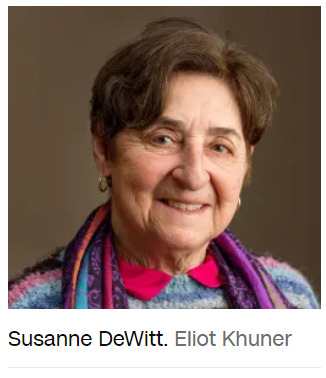
#jumblr#october 7#israel#antisemitism#frumblr#terrorism#usa diaspora#Jewish women#Shoah survivor#Pesach#Passover#Sanne DeWitt
121 notes
·
View notes
Text
🔴Campus protests across the U.S. since April 17
Brown University
California State Polytechnic University
City University of New York
Columbia University
Emerson College
Emory University
Florida International Universit
Florida State University
George Washington University
Harvard University
Indiana University
New York University
Northeastern University
Northwestern University
Ohio State University
Princeton University
Rice University
Texas A&M
Massachusetts Institute of Technology (MIT)
Michigan State University
New School - New York, NY
University of Michigan
Tufts University
University of Arizona
University of California at Berkeley
University of Maryland
University of Miami
University of Minnesota
University of New Mexico, Albuquerque
University of North Carolina at Charlotte
University of North Carolina at Chapel Hill
University of Pittsburgh
University of Rochester
University of Southern California
University of Texas, Austin
University of Texas at Dallas
Vanderbilt University
Yale university
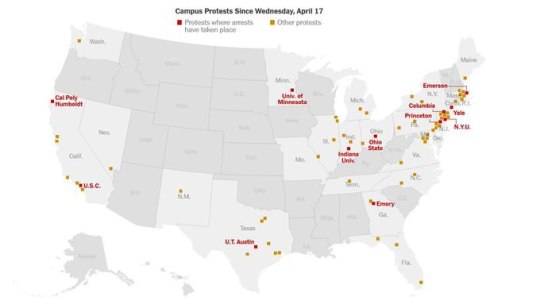
#etats unis#campus#united states#usa#usa news#états unis#palestine will never die#from the river to the sea palestine will be free#genocide in palestine#palestine will be free#free palestine#palestinian resistance#i stand with palestine#palestine#palestine genocide#palestinian genocide#free free palestine#palestinians#pro palestine#stand with palestine#save palestine#support palestine#gaza genocide#gaza under attack#gaza strip#free gaza#gaza under genocide#genocide in gaza#save gaza#gaza
65 notes
·
View notes
Text
College Shitlist (boycott these colleges)
This is the updating list of colleges where pro-palestine protests are present that have brutalized/arrested/punished their students for protesting the ongoing palestinian genocide.
REMEMBER: DO NOT GIVE YOUR MONEY TO THESE COLLEGES. PROTESTS ON THESE CAMPUSES ARE IMPORTANT, BUT KEEPING YOUR INTELLIGENCE AND MONEY AWAY FROM THESE ABHORRENT INSTITUTIONS DIMINISHES THEIR POWER. THEIR ONLY POWER COMES FROM THEIR STUDENTS AND THEIR MONEY. YOU HAVE THE POWER TO TAKE THEIR PRESTIGE AWAY.
In No Particular Order:
Princeton University
Massachusetts Institute of Technology
University of California - Berkeley
Stanford University
Virginia Tech
University of Michigan - Ann Arbor
University of Washington
University of Minnesota - Twin Cities
University of Wisconsin - Madison
Harvard University
Yale University
University of California - Los Angeles
Cornell University
University of Pittsburgh
University of Chicago
University of Southern California
University of California - San Diego
Tufts University
Northeastern University
Stony Brook University
University of Connecticut
University of California - Merced
University of Massachusetts - Amherst
University of Iowa
University of Arizona
Arizona State University
University of California - Irvine
George Washington University
DePaul University
University of Pennsylvania
Pomona College
University of Texas - Dallas
The New School
University of Houston
University of Rochester
University of New Mexico
Duke University
New York University
University of North Carolina - Chapel Hill
Barnards College
University of Vanderbilt
Rutgers University - New Brunswick
Columbia University
Portland State University
University of Oregon
California Polytechnic Institute Humboldt
California Polytechnic University - San Luis Obispo
Northern Arizona University
University of Utah
University of Kansas
University of Illinois - Urbana Champaign
Washington University
New Mexico State University
University of Texas - Austin
Tulane University
University of South Florida
University of North Florida
University of Florida
Emory University
University of Georgia
Mercer University
Notre Dame University
Case Western Reserve University
The Ohio State University
Virginian Commonwealth University
University of Virginia
University of Buffalo
State University of New York - Purchase
State University of New York - New Paltz
Brown University
Brandeis University
Dartmouth College
University of New Hampshire
Emerson College
CUNY City College of New York
International List:
University of Amsterdam
University of Alberta
University of Queensland
University of Sydney
University of Melbourne
Australian National University
University of New South Wales
University of Calgary
University of Oxford
Feel free to share this list, send me additional colleges to add (WITH SOURCES), and/or request more information on a particular college
#palestine#gaza#free palestine#boycott israel#free gaza#princeton#yale#harvard#cornell#brown#dartmouth#mit#nyu#gaza genocide#notre dame#stanford#boycott#divest from israel#Oxford#Amsterdam#sydney#Palestine protests
47 notes
·
View notes
Photo
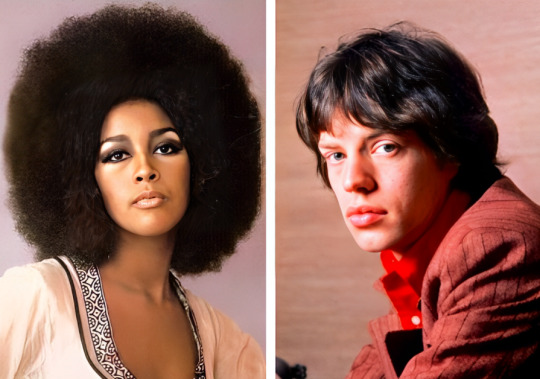
THE FULL HISTORY OF THE MICK JAGGER & MARSHA HUNT (A.K.A. “BROWN SUGAR”) RELATIONSHIP!!! (PART 1)
First, some background on the model, singer, actress, novelist, playwright, activist, icon, 60s goddess, and the woman who inspired one of The Rolling Stones’ greatest hits, “Brown Sugar”, Marsha Hunt. She is often described as London’s own Josephine Baker and is celebrating her 77th birthday today!:
Marsha A. Hunt was born on April 15, 1946 in Philadelphia, Pennsylvania and is the youngest of 3 children. Her mother, Inez “Ikey” Hunt, worked in an airplane factory during World War II, and her father, Blair Hunt Jr. graduated from Harvard and became one of America's first Black psychiatrists.
Marsha was raised in a middle-class neighborhood mostly by her mother, aunt, and grandmother who had roots in the deep south (Mississippi delta) and who she’s described as an “extremely aggressive and ass-kicking independent woman.” Her father committed suicide when Marsha was 9 years old (but she never found out how or why).
After moving out west to California with her family, she graduated high school at the top of her class and later attended UC, Berkeley in the mid-’60s where she wanted to study psychological anthropology.
While at Berkeley, she became friends with a slew of interesting people like activist Mario Savio and Huey P. Newton, who later became one of the founders of the Black Panther Party.
[TOP LEFT: Marsha’s mother Inez Hunt; TOP RIGHT: Marsha’s father, Blair Hunt Jr.; BOTTOM LEFT: Marsha at her home in Philly with her father & siblings, Pamala & Dennis; BOTTOM RIGHT: Marsha’s high school graduation photo in 1964.]

Even though she thrived academically and was very involved in student activities, she became bored with college life and wanted to experience life outside of the country and pursue her real passion – music. In early 1966, she sold her car and some books, and trailed off to London with only $1.83 in her pocket.
Around that time, London was THE city to be in, and was even dubbed “Swinging London” for being the epicenter of art, culture, fashion and of course music, especially due to the popularity of famous acts like The Beatles and The Rolling Stones.
When Marsha first arrived, she slept on the floors of mutual friends, took odd jobs (including one as an au pair), and even appeared as an extra in Michelangelo Antonioni's box office hit film, “Blow-Up,” which also featured the British rock band, The Yardbirds.
SHOCKINGLY, in that same year she actually saw The Rolling Stones in concert for the first time during their UK tour at the Royal Albert Hall in London because she wanted to see Ike & Tina who were the supporting act on the bill. Girls were going crazy over the Stones, but of course, she was more impressed by Tina’s show-stopping performance! (Purrrrr 💅🏿)
[LEFT: Marsha in 1966; RIGHT: The Rolling Stones performing at the Royal Albert Hall in London with Marsha in attendance.]

After roaming the city, making new friends, and trying to find steady work, Marsha ended up auditioning for a blues band fronted by British blues musician, Alexis Korner, who was looking for backup singers. Coincidentally, he was the exact same guy who gave The Rolling Stones their start back in 1962. Later on, she was offered another backing gig for Long John Baldry’s band, Bluesology. John is also a longtime friend of The Beatles and The Rolling Stones.
Though she loved music and worked really hard at it, Marsha always claimed that she was never a good singer. People in England just assumed she was because they thought all Black Americans had talent.
She then lived with English blues singer, John Mayall, who actually wrote a few songs about her including, “Marsha’s Mood” and another song coincidentally called “Brown Sugar”. Around this time, she became good friends with the founding members of Fleetwood Mac, famed British artist Kaffe Fassett, and keyboard player for Bluesology, Reg Dwight (a.k.a Elton John).
[LEFT: 19 year old Marsha sporting a wig in London; RIGHT: Marsha with a young Elton John].
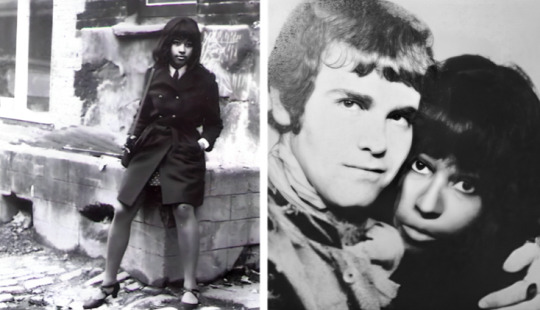
Around the time Marsha broke things off with John, he was also putting a new band together, which included a young guitarist named Mick Taylor, who showed up at the audition without a guitar. He later became another good friend of Marsha’s.
In late 1966, Marsha met musician Mike Ratledge from the British rock band, Soft Machine. At the time, she was having trouble getting a visa extension to stay in England, so the two got married on her 21st birthday. She later claimed it was a marriage in name only as they were not romantically involved and “never held hands and never kissed".
[LEFT: Guitarist Mick Taylor & John Mayall in the mid-60s; RIGHT: Marsha’s “husband” Mike Ratledge of Soft Machine.]

That same year, Marsha’s hair started to fall out from using chemical relaxers, and after wearing wigs for a while, she finally cut it all off and vowed to never straighten it again. Hence, why she started sporting her iconic afro hairstyle which made her quite a showstopper in London.
In 1968, she found luck when she was cast in a buzzy new rock musical with an ensemble cast called “Hair.” The musical became an instant hit in London’s famed West End. And even though her character “Dionne” only had two lines, she suddenly became the face (or the hair) of “Hair”. The show was a huge success, and also became quite a sensation and a social landmark because it highlighted controversial subjects like drugs, casual sex, profanity, nudity, and anti-war rhetoric. While there, she met another close friend, actor Tim Curry.
[BOTTOM: A poster of the hit musical “Hair” that debuted in the Shaftesbury Theatre in the West End, 1968.]
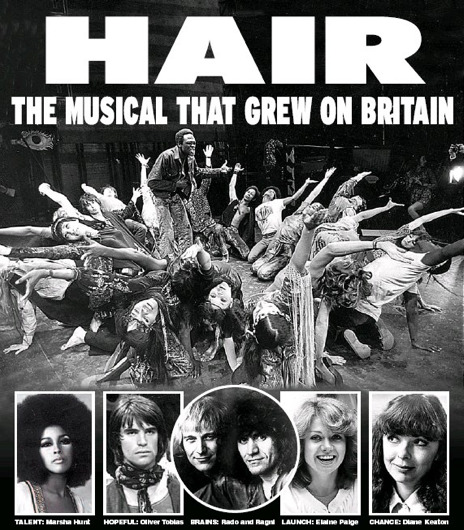
Her life completely changed overnight and she instantly became a PHENOMENON, attracting wide media attention. In fact, after the musical’s opening night, the editor of British Vogue sent her a huge bouquet of flowers and wanted her to pose for a photo session, which ended up being a 4-page spread with a written profile. Marsha was also the first Black woman to appear on the cover of Queen magazine as well.
[LEFT: Marsha pictured as the first Black woman on the cover of Queen magazine; RIGHT: Marsha photographed for British Vogue in 1969.]

She immediately became a sex symbol, celebrity, and the face of the “Black is Beautiful” movement, which was already taking over America in the mid-60s. This helped her snag lots of modeling gigs and everyone wanted to photograph her. (I mean, sis was booked & busy!!!)
[BOTTOM: More of Marsha’s most iconic shots. *The melanin was melanating, 4C afro was on deck, eyelashes poppin’, lips bussin’...she was a *bad bitch*!!!]

In March 1969, she signed a contract with Track Records, the same independent label that also repped the British rock band, The Who and Jimi Hendrix, as she later said, “There was one luxury that London celebrity afforded me: the freedom to be myself without a single apology for my gap, my freaked-out hair, my brown skin, my slave-class ancestors or my radical views.”
Around this time, she also had a short-lived love affair with Marc Bolan, the singer and founder of the English rock band, T-Rex (even though he was much shorter than her 😂.)
She scored a few minor hits during her underrated music career with singles like a cover of T-Rex’s “Desdemona” and her debut single, a cover of “Walk on Gilded Splinters”.
[BOTTOM: Marsha performing the T-Rex cover “Desdemona” live.]

The record soon went to the charts, and that spring, she was asked to perform on various shows, including a popular British TV program called, “Top of the Pops”. During her live performance on the show, the tight bolero suede top she wore nearly came undone and partially exposed her breasts, a wardrobe malfunction that gave her the reputation of a “bad girl.”
NOW…Here’s the part y’all have been waiting for. Get your popcorn. Y’all got it? Ready? Good!!! 🍿
After her performance aired, Marsha soon received a phone call out of the blue from Jo Bergman, the then secretary for The Rolling Stones on behalf of the band’s frontman Mick Jagger who was actually watching the show live, asking her to pose semi–nude for a publicity photoshoot to promote the band’s new single, “Honky Tonk Women”. She said, “The picture was going to be of a girl dressed like a sleaze bag standing in a bar with the Stones and they wanted me to be the girl.”
[BOTTOM: Marsha performing "Walk on Gilded Splinters” on ‘Top of the Pops’ in May 1969. This was also the exact moment Mick Jagger first laid eyes on her!]
dailymotion
Marsha, who was not a Stones fan, was already established and didn’t really need the extra exposure. She later declined because she had her reputation to think about and said she “didn't want to look like [she'd] just been had by all The Rolling Stones.” She also claimed, “The last thing [Black women] needed was for me to denigrate us by dressing up like a whore” among a band of white men.
ENTER MICK JAGGER:
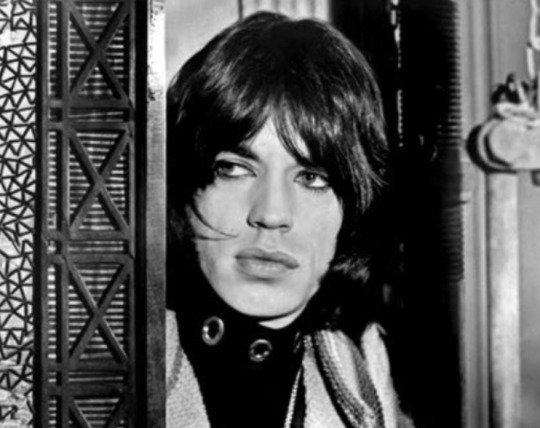
When she tried to get in touch with Mick to say, “thank you, but no thank you”, he later returned her call in an attempt to change her mind and even suggested he come over as he was very intrigued that a girl would turn him down.
Mick then showed up at her apartment around midnight as she claims, “He was framed by the doorway as he stood grinning with a dark coat ... He drew one hand out of his pocket and pointed it at me like a pistol. His silly 'Bang' was precisely the icebreaker we needed to get over my ungracious hesitation before I invited him in, not sure how to salute a notorious rogue who rings me just before midnight and suggests he pop round on a pretext of loneliness.”
They talked for HOURS, well until the sun came up about any and everything from music to social issues and politics, and according to her, Mick “made me squeal whenever he used Melanigian slang (aka Black vernacular/AAVE).” 🙄🤦🏾♀️
Marsha didn’t really find Mick physically attractive at first, stating, “He wasn't beautiful or even striking” however, he was boyish, open, direct, yet seemed quite awkward and shy. She found it a relief that he was nothing like other musicians she’d known or the image the media had portrayed him. He was incredibly charming, intelligent, funny, radical, and straddled the racial line, much like she did. She also quickly noticed that he had a penchant for Black women, as he claimed “They [Black women] just do something to me”.
The two of them had a lot in common and just clicked right off the bat. And things eventually turned hot as they ended up having sex. From there, they embarked on a passionate, but very private, deep romance and year-long affair, at a time when interracial relationships weren’t widely accepted yet.
Marsha didn’t expect to hear from him again, as he had a wide selection of women to choose from, but surprisingly, Mick wanted to see her and talk all the time, mostly because she was great to look at and he could count on her. Marsha said, “He knew that I adored him and that he could depend on me…he realized I respected him as I respected myself.”
Mick’s friend and interior designer Christopher Gibbs once said often when he dined with Mick, women who had slept with him would come up to the table and “he’d have absolutely no idea who they were.”
[LEFT: Mick photographed at the Shaftesbury Theatre in London to see the new musical “Hair” for the first time; RIGHT: Marsha performing in the show.]

1969 was a very rough year for Mick. He was having trouble with his band The Rolling Stones (which he was practically running by himself) because the founder and guitarist, Brian Jones, was becoming increasingly unreliable and spiraling out of control due to his deep drug addiction and legal troubles that led to him having difficulty getting a US work visa to go on an upcoming tour. Mick’s personal life was also a mess because his long-term girlfriend at the time, pop singer Marianne Faithfull, was also a very serious (and sloppy) drug addict, who often embarrassed him and became more dependent and difficult to be around. Things had gotten so bad between them, their relationship grew to be strictly platonic by this time.
Mick and Marianne were quite destructive together and often found themselves in legal troubles due to drugs. Marianne was also quite messy as she previously slept with Mick’s bandmates Brian Jones, Keith Richards, and even left her husband, John Dunbar, for Mick who was dating Black soul singer and former Ikette, Pat “P.P.” Arnold, when they first met.
P.P. also later claimed in her autobiography “Soul Survivor” that the three of them would often engage in drug-fueled threesomes much to Mick’s delight.
[BELOW: Soul singer & former Ikette, P.P. Arnold, who dated Mick from 1966-1967.]
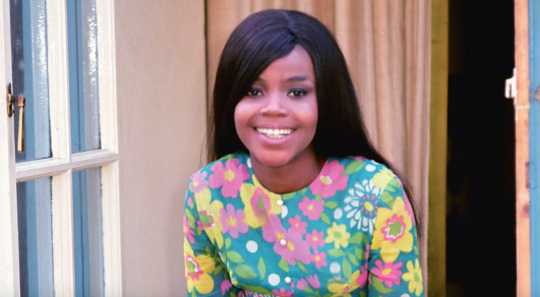
While in London, Mick was still messing with P.P. who later became pregnant with his baby in 1967, but they both agreed to have an abortion, partly due to his growing relationship with Marianne.
[BELOW: Mick arriving at a courthouse with his then girlfriend, singer Marianne Faithfull in 1969.]
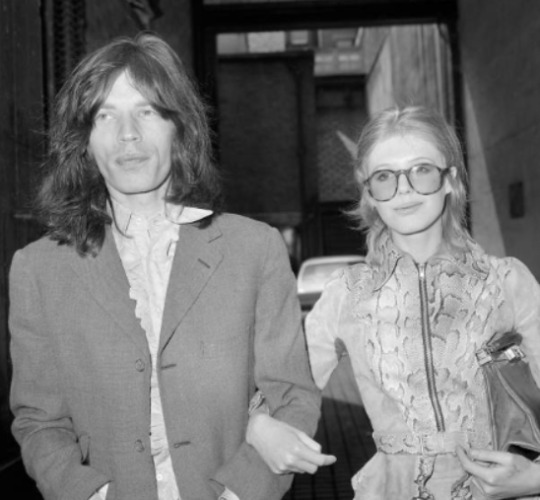
Marsha on the other hand, was stone-cold sober and didn’t do any drugs (NOT ONE), which was like a breath of fresh air for Mick, though he dabbled with hashish, LSD, and marijuana among other drugs himself. But unlike those around him, he was able to control his habit.
Even though their relationship quickly turned sexual, they were really, really close friends. Mick often retreated to her home to relax, he told her all his secrets, his troubles – he just trusted her. He was completely enamored of Marsha, who many describe as warm, intelligent, sensitive, funny, and very easy to talk to. He liked that she didn’t go gooey-eyed and weak-kneed in his presence like most (white) women/female fans did. Instead she had a crisply forthright manner and was almost quite “butch”. The Rolling Stones then manager was even quoted as saying that Mick was “obsessed” with Marsha as she was very exotic, and he even gave her the nickname “Miss Fuzzy” due to her afro hairstyle.
Ironically, Marsha enjoyed their well-kept relationship and is one of the only people who often calls him Michael instead of Mick, to distinguish him from his Rolling Stones rockstar persona.
Since Marsha was a fellow recording artist, they were able to be seen together in public without any arousing suspicion—in any case, London still had almost no paparazzi. They would often go to the same parties or events, even with Mick’s girlfriend there, and no one questioned it.
Mick would often pop into some of Marsha’s studio sessions with her band White Trash, and everyone around would be in awe of him.
Later, after officially firing Brian Jones from the band, Mick and the rest of the Stones were in desperate need of a new guitarist. Marsha promptly suggested her good friend, Mick Taylor (Yes, Stones fans – thank Marsha Hunt for that one!), as a replacement for Brian just days before he was mysteriously found dead (he sadly drowned in a swimming pool at his home) on July 3, 1969.
Additionally, when Mick sought a replacement for Jo Bergman, the secretary who handled all The Rolling Stones affairs, Marsha also suggested her friend and tour manager, Peter Rudge - (The same guy responsible for getting the Stones all those huge tours in massive stadiums. Again, thank Marsha!)
Two days after Brian’s death, the Stones played a free concert before a crowd of over 250,000 people in Hyde Park, London, which was previously planned to debut their new guitarist, but turned into a memorial/funeral for Brian. Mick invited both Marianne (who looked a hot ass mess and was in withdrawal from heroin at the time), and Marsha (who showed up looking sexy af with her titties bustin’ out of her buckskin suit) to the concert, and rudely and distastefully opened the show with a song called, “I’m Yours and I’m Hers.”
[BELOW: Mick & Marsha at The Rolling Stones tribute concert to Brian Jones in Hyde Park, London on July 5, 1969.]

Marianne who sat on the other end of the stage with her 4-year old son Nicholas and the other Stones wives/girlfriends, actually saw Marsha that day as she was placed right above the stage in the scaffold VIP section at the request of Mick so that he could look at her while he performed. She later said, “I saw her [Marsha] you know. And she was stunning…If I’d been Mick in that situation, I might have done exactly the same thing.”
Mick arrived at the concert with Marianne that afternoon, but left with Marsha and spent the night at her place where they made love.
A day after the concert, Mick kissed Marsha goodbye, and flew with Marianne to Australia to shoot a biographical film they were both cast in called “Ned Kelly,” based on the infamous bushranger. However, Marianne who was reeling from the recent death of Brian Jones and a horrible miscarriage just a few months earlier, overdosed on 150 Tuinal barbiturates while traveling with Mick, and fell into a coma in their hotel room.
[LEFT & RIGHT: Mick & Marianne arriving in Australia to film “Ned Kelly.” Marianne slipped into a coma just hours later from an attempted suicide.]

At the last minute, Mick was forced to film the movie without her, but phoned and wrote to Marsha, who was extremely frantic and worried about his mental health and emotional well-being, almost everyday. She was scared that he didn’t have the stamina to deal with yet another crisis. He sent Marsha over 10 handwritten letters (some even written on the same headed stationery paper of Chevron Hotel where his girlfriend just tried to kill herself) about his deep feelings for her, his experience filming on set, being in the Australian outback, his new interests, the historic day of the moon landing of 1969, future career plans, his regret at missing her performance at the famous Isle of Wight Festival, and other aspects of pop culture (including “John & Yoko boring everybody…”). The letters also reference the recent death of his former bandmate Brian Jones, Mick’s increasingly difficult relationship with Marianne, and another letter even had the full original lyrics for The Rolling Stones song “Monkey Man”, which was later rewritten.
Mick’s letters also went on to mention the foul Australian winter weather and an unpleasant virus that swept through the film unit, a fire that destroyed most of the film’s costumes, along with various other accidents – including a prop gun that backfired in his right hand. He was just having a real shitty time. So, he found solace writing to Marsha.
His letters to Marsha showed how pensive and romantic he was. He said things like,“I feel with you something so unsung there is no need to sing it...” and “If I sailed with you around the world, all my sails would be unfurled.” He also thanked her for being “so nice to an evil old man like me”. And in another steamy note, Mick promises Marsha: "I will kiss you softly. And bite your mouth too."
[RIGHT & LEFT: Mick’s private letters sent to Marsha while filming “Ned Kelly” in Australia during the late summer of 1969.]

Mick also celebrated his 26th birthday while filming in Australia and Marsha sent him a huge package of books (which he loves) and albums, including her friend John Mayall’s record “Brown Sugar.” Along with his gifts was a note stating how she missed him desperately.
While still trying to rehabilitate his hand from the prop accident, Mick toyed with a new guitar he had and started work on a song he had in his head, which was partly inspired by Marsha and that he initially titled “Black Pussy.” He decided that name was a little too direct and changed it instead to “Brown Sugar” with the lyrics:
[Verse 1]
Gold coast slave ship bound for cotton fields Sold in the market down in New Orleans Scarred old slaver knows he's doing alright Hear him whip the women just around midnight
[Chorus]
Brown sugar, how come you taste so good? Uh huh Brown sugar, just like a young girl should
[BOTTOM: Recording of “Brown Sugar” by The Rolling Stones later released on their Sticky Fingers album in 1971.]
youtube
Mick later confirmed in a 1995 Rolling Stone magazine interview that the song is a double-entendre: “brown sugar” being the street name for unrefined heroin and of course also meaning his seemingly equal addiction to having sex with Black women. The song was a huge commercial success and ended up becoming a huge #1 hit around the world, making it one of the Rolling Stones’ best-selling records to date.
[TOP: A movie poster of “Ned Kelly” which was released in June 1970; BOTTOM: Mick with his guitar composing “Brown Sugar” during filming.]

While Mick was still filming overseas, Marsha was booked to perform at the iconic 3-day outdoor concert, the Isle of Wight Festival on August 30th, 1969. At the time, it was the biggest open-air concert in music history and she was the only woman billed to perform. She was there alongside acts like The Who, Joe Cocker, and even Bob Dylan who hadn’t been onstage in three years.
Mick told her in a letter that he was so proud of her and promised her that he was “there in my head and in my heart.” Keith Richards, Charlie Watts and his wife Shirley, and Jo Bergman were also in the audience watching Marsha perform.
Marsha also made headline news as she wore custom-made leather shorts to which the press ran with and by the next fashion season, short shorts were featured in every fashion magazine. She was the first person to popularize “hot pants”.
[BELOW: Marsha performing with her band White Trash at the Isle of Wight Festival in 1969 with members of The Rolling Stones looking on in the audience.]

After Mick came back from Australia, Marsha was offered a part in a film called “Welcome to the Club” which is a comedy about three Black USO performers sent to Hiroshima in the 1940s to entertain the troops on an all-white base. The film was being directed by Walter Shenson, who had produced The Beatles' films “A Hard Day's Night” and “Help” and shot it entirely in Copenhagen, Denmark.
She was also asked to fly back to London to shoot another cover for American Vogue which was shot by photographer Patrick Litchfield. (They‘d never had a Black woman on the cover before.)
Mick began touring in America again, his first since 1966, and with the number of girls he had access to, she knew he was keeping himself busy on and off stage.
[LEFT: Mick on stage at Madison Square Garden during the Stones’ 1969 tour; RIGHT: Marsha filming “Welcome to the Club”.]

He even started a short-lived relationship with yet another Black singer and Ikette Claudia Lennear, as well sparking up a fling with Devon Wilson, a notorious rock & roll groupie and the girlfriend of Jimi Hendrix who famously wrote the song “Dolly Dagger” about their affair.
[LEFT: Mick arriving at Madison Square Garden in November 1969 with Devon Wilson; RIGHT: Mick backstage at the same event with singer Claudia Lennear.]

But on December 6, 1969 - everything changed dramatically when an 18-year old concertgoer was stabbed and killed during the Stones’ free concert at the Altamont Speedway in California by the Hell’s Angels Motorcycle Club, who was the band’s security. Members of the Hell’s Angels blamed Mick for the incident and subsequent to the concert, put a hit out on him and threatened to murder him. This marked the third major tragedy to happen since Mick and Marsha met each other.
[BELOW: A scared Mick looks on as 18-year old Meredith Hunter is stabbed to death by the Hell’s Angels in front of the stage while the Stones performed at Altamont Speedway.]

Marsha stayed with Mick after the chaos at Altamont, which the media dubbed “The Death of the ‘60s”. By this time, he had officially split up with Marianne and moved Marsha into his house on Cheyne Walk where she helped him to transition and readjust his life. It was then their relationship intensified!
This is around the time she got a chance to know some of Mick’s friends who lived on the same road, including Keith Richards and his girlfriend, actress Anita Pallenberg, who just had a son, but was hooked on heroin. She thought they were both nice, but they’d visit or show up unannounced to their home all the time. Their hard drug-taking also scared Marsha, so she kept her distance and didn’t voice her opinion.
She also met Mick’s parents, Eva and Joe Jagger, along with his little brother Chris who was a bit of a hippie and had just returned from India with his American girlfriend. They both had no work, no money, and nowhere to stay, so Marsha kindly gave them a job, one included painting her new apartment.
That Christmas, Marsha got Mick a puppy and Mick, for the first time, told her that he loved her.
Marsha was in a good place. Opportunities were coming to her fast, she had a new apartment, and she was in love with Mick. She had newfound stability and independence.
In January 1970, they were having dinner at the celebrity hotspot restaurant Mr. Chow’s when Mick said that she’d be a good mother and that they should have a baby together. Prior to this Marsha thought she was just another girl he fancied, as he was a notorious womanizer. But the talk of having a baby made her feel special to him. Her feelings for him were so deep that she also claimed, “I would have died for him.”
She knew Marianne miscarried around the same time Keith Richards’ son Marlon was born. Mick also missed family life with Marianne’s son Nicholas, so wanted to give having a baby a second try.
This fool literally made Marsha take out her birth control and IUD coil, they proceeded to have sex like rabbits, and when she found out she was 3 weeks pregnant, she told Mick who was ecstatic.
Marsha literally said to him, “Listen, if you’re not ready and you changed your mind about this, it’s okay.” She was totally ready to get an abortion. But he assured her that it was what he wanted and he was happy.
They had their first argument when it came time to naming their baby. Mick wanted a boy who he could send to the prestigious Eton School (the all-boys school where Prince William & Prince Harry attended), and he proposed that they call the baby ‘Midnight Dream’. Marsha wasn’t having it and even said, “Imagine sticking your head out of a window to call your child home and yelling, 'Midnight. Midnight! Time for tea.’”
She'd known that he and the band were leaving England for tax reasons and moving to France in the coming year. The Stones were also gearing up for their upcoming European tour.
Even though she loved Mick, he was young and she claimed she was “all for Mick doing his own thing”. They were supposed to be the sophisticated embodiment of an alternative social ideal — parent-hood shared between loving friends living separate lives.
This was around the time of the sexual revolution and people were exploring different types of relationships. Marsha didn’t find gratification in being “Mr. So and So’s” wife, plus Mick wasn’t the marriage type either. He was the type of guy to get up at 2pm to start his day - so marriage was sort of off the table. Though, unbeknownst to Marsha, Mick has thought of proposing, she claimed their relationship “thrived off her being supportive” and she loved to see him “run free”. And since she grew up in a matriarchy, the ideal of a man and woman living together seemed nice but unnecessary. They agreed that Mick would be a good absent father while he made his music and toured with The Rolling Stones, and Marsha could still have her own life and career. It was all very modern!
Marsha also feared that her association with Mick would crowd out her own identity. She didn’t like the limelight because it was a discomfort. She also never wanted to be known as Mick Jagger's girlfriend (can you blame her? So many of his girlfriends tried to commit suicide). Like him, she wanted her own independence.
By June 1969, Marsha told her band and the press that she was pregnant, but did not give up the name of her baby’s father. However, one little clever ass reporter actually found out it was Mick Jagger and threatened to print it. She thought of suing but asked the Stones PR team to link him to another girl. She managed to get through her pregnancy without a media frenzy or being linked to Mick even though they had stepped out together many times, and he was ready to have it reported.
While Mick was away touring in Europe, his phone calls got less frequent. The tour was a bit crazy, and although Mick invited her to go to Paris, he knew she'd refuse – she didn’t want to get caught up. But he told her he was lonely and had met someone in Paris that he was taking to Italy. Her name was Bianca. She was Nicaraguan and spoke little English. Mick didn't mention her again, but after the tour, Marsha knew that she had moved to his house in England.
His publicist sent her an invite to the premiere of his corny movie, “Ned Kelly,” but he didn’t show up. He also invited his parents to the event and it was there she realized that the bastard didn’t tell them that he had a baby on the way. Mick hardly lavished praise on his parents and even once told the press, “I owe them nothing. They are my parents, that is that…but there are no dues to be made by me to them!”
By her third trimester, having a baby became her whole reality and his passing fancy. He started to forget that the baby was HIS idea.
Despite Marsha carrying his child, practically all references to her and the baby were quickly airbrushed out of his life. Chris O'Dell, Mick’s PA in the early ‘70s was even quoted as saying, “I never remember him talking about their child. In fact, I wasn’t aware of a baby being around at all. It was almost like [his first child] didn’t exist.”
Marsha was put in a difficult position because it was too late to go back and sometimes he’d phone her like nothing ever happened. She claimed his mood would change so quickly, he was like Dr. Jekyll and Mr. Hyde. She also said, “I've discovered that he can burn hot and suddenly cool to below zero.”
She started to worry that he didn’t care anymore, so, she tried to squeeze in any and every piece of work she possibly could to hold her up during and after her pregnancy (tv shows, photoshoots, etc.). She also volunteered at a local mental-care center in the autistic unit caring for a 12 year old boy to keep from feeling useless.
[BELOW: A heavily pregnant Marsha performing in late 1970.]

At the same time, Mick also did a lot of peculiar interviews, either stating he wasn’t interested in having children or flat out dissing Marsha. During a 1970 interview with London’s Daily Mail newspaper he even said, “For me, life has always got to be on the move and exciting. I love kids, I really do…but it’s not something I’m thinking about.” He of course failed to mention that Marsha was expecting their first child.
[BELOW: Mick during an interview referencing Marsha & his unborn child in 1970.]

Once it was time for her to give birth, a hard-up Marsha was ashamed and reluctant to ask him for any contribution because he never once offered. Mick ultimately gave her a measly £200 to get by, which came with a note saying “I know I haven’t done right by you” and he also “loaned” her a ring he always wore.
She had initially planned a natural home delivery to keep the press at bay and because it was the “it” thing to do at the time, but was told by her OB-GYN that her baby was in danger and that she had to go to the hospital the next day.
On November 3rd, she dragged her own luggage and hailed a taxi to the hospital only to be told there weren’t enough beds. Panicked and scared, she went back home quite sure she was going to die from an unassisted childbirth.
When she went back to the hospital the next day for an induced labor, she checked in with her married name “Ratledge” to protect herself (and Mick). On November 4, 1970 after hours of labor, she gave birth to a girl she named Karis and phoned Mick first and then her mother. That day was the first time Mick actually told his now girlfriend, Bianca, that Marsha and his baby existed.
While waiting in the maternity ward, the nurses also forgot to feed Marsha who was so hungry. But being on The National Health, she didn’t complain.
When she checked out of the hospital, Mick sent a bouquet of red roses, a miniature muse figurine for the baby, a silver spoon, and some cheap Indian earrings for Marsha. He “dropped by” two days later to see his baby but was in a hurry to be somewhere else.
10 days later, he paid another rushed visit, but she eventually took him to the side because she wasn’t in the mood to entertain his detachment. And she was kinda like, “Hey! What’s up with you? Why don’t you call or come around more often for the baby” trying to get some genuine reaction out of him instead of keeping her at bay with the polite chitchat bullshit, in which he snapped and yelled at her, “I never loved you” and told her that she was “mad to think that he had”. Of course Marsha, hormonal, stitches still in, burning and all, did not expect for him to stab back and immediately started to cry, which only made him more angry. The piece of shit even had the audacity to threaten to take her newborn baby away from her if he chose. She stopped and in a stern voice said, “Try it! I’d blow your brains out!!”
In that moment, the loyalty she had for him was gone. She had no choice but to push forward and tried to find as much work as she could to support herself and her baby.
[BELOW: Marsha & Mick after the birth of their first child Karis Hunt in late 1970.]

READ ‘PART 2’ HERE!!! ☕️☕️☕️
#marsha hunt#mick jagger#the rolling stones#brown sugar#rolling stones#interracial couple#black women#karis jagger#music#history#rock history#rock & roll#musicians#thread#gossip#old school tea#1960s#1970s#sbrown82
328 notes
·
View notes
Text
by Seth Mandel
ITEM: In Oakland, California, a Jewish woman walks into her son’s seventh-grade classroom on back-to-school night to see a poster that says, “From the river to the sea, Palestine will be free.”
ITEM: In New York City, on the anniversary of Kristallnacht, angry pro-Palestinian crowds surround a Jewish man and bloody his head with a chair.
ITEM: In Philadelphia, hundreds mob a Jewish-owned restaurant, chanting, “Goldie, Goldie, you can’t hide; we charge you with genocide.” The restaurant is named Goldie.
ITEM: In Berkeley, California, the only Jewish teacher at an elementary school returns to find her door covered in Post-it notes that say, “Stop bombing babies!”
ITEM: In Chicago, home to the third-largest Jewish population in America, unions organize a high- school walkout in which students call for the destruction of Israel. “I’m incredibly proud of our students for exercising their constitutional rights to be able to speak out and speak up for righteousness,” said Chicago Mayor Brandon Johnson.
ITEM: In Washington, D.C., attendees arriving at a concert by the American-Jewish singer Matisyahu are greeted by a pro-Hamas demonstration.
At school, at work, and at play, American Jews find themselves increasingly ostracized by their peers. On college campuses, the quiet reestablishment of unofficial quotas has, over the course of a generation or two, halved the Jewish enrollment at a selection of elite universities. These days, stories of higher education’s turn against the Jews are ubiquitous. But as the above examples demonstrate, the attempt to cast Jews and Judaism out from the public square—or make Jews extremely uncomfortable inside the public square—has spread far beyond the college quad. And the statistics unambiguously say the same.
In the American Jewish Committee’s comprehensive survey of anti-Semitism in 2023, respondents were asked: “In the past 12 months, have you avoided certain places, events, or situations out of concern for your safety or comfort as a Jew out of fear of antisemitism?” Twenty-six percent—a quarter of U.S. Jews—responded in the affirmative. That is a 10-point increase over last year. In the poll, the number of those who admitted to avoiding “wearing, carrying, or displaying things that might help people identify you as a Jew,” as well as those who said they “avoided posting content online that would identify you as a Jew or reveal your views on Jewish issues,” increased as well.
All of this reflects the modern reality across the country. FBI reports show Jews are the target of more than half of all religiously motivated crimes. According to the Anti-Defamation League, over the course of the three months after October 7, there were more than 600 reported anti-Semitic incidents against Jewish institutions. And the ADL found a nearly 50 percent increase in security costs for Jewish schools in New York, New Jersey, and Florida.
46 notes
·
View notes
Text
Pluto in Aquarius: Too Big to Fail, Too Inhumane to Succeed
The last time Pluto was in Aquarius was the French Revolution. I took a class on the revolution in college and heard this heartbreaking story: The peasants were on the side of the monarchy for a long, long time, even though they had the most to lose.
They said, “If only the king knew what was happening, he would fix it.”
They had no idea the king didn’t know or care about them. They were still living in a feudal mindset, believing that loyalty went both ways, long after the world moved on.
I was reminded of this story a few years later when I went to visit family in Pittsburgh. They took me to a seminary that had set up shop next to an old factory. The school wanted to build classrooms in the old, crumbling building next door, but the city refused.
“If only the steel company knew what happened to our town after they left, they would come back and fix it,” they said.
They remembered the days when big corporations invested in the local community, building housing for workers, an excellent medical system, and a university. So, the building sat empty, waiting for the companies to return like England waiting for Arthur and the French peasants waiting for the ear of the king.
Pluto in Aquarius shows us the structures that are too big to fail but too inhumane to succeed. Last time, the story ended with the birth of empires. This time, we are watching the last vestiges of empires collapse.
When I moved from Boston to Berkeley in 2009, my friends and family teased me. “What is the matter with you,” they said, “You’re moving three thousand miles to go to Cambridge West?”
Since most of my critics were academics, and I was in graduate school, all they could see were two university towns. They had never lived in the West, and they were operating on the assumption that culture could be stretchy enough to reach across a continent, and the land a community lives on has absolutely nothing to do with a people’s way of life.
I quickly learned that there are enormous differences between Boston (“Cambridge East”) and Berkeley (“Cambridge West.”) One spends half the year blanketed in snow and ice, and the other can count on temperatures that hover around 68 degrees most of the year. One was built unmoving granite scraped clean by glaciers. The other was built on an active fault line that cuts through the school’s stadium. One could rely on precipitation roughly every three days. The other cycled between seasons of heavy rain and drought.
Each of these areas of difference had a profound impact on the collective personality of these places. It showed up in their relationship with tradition and innovation, their introversion and extroversion, the rate of change and speed of daily life.
But the most surprising thing about living in a state that prides itself on having a GDP bigger than most countries was how much I felt like I was living in an outpost of the empire.
I first became aware of this frontier feeling during my first wildfire season. The ecosystem in Western North America has evolved to require regular fire cleanses. There are plants that can’t reproduce without it, and the animals and people who thrive here have adjusted to the idea that everything can go up in smoke at a moment’s notice.
Once upon a time, the indigenous people worked with the land’s need for wildfires. They lived lightly. Setting small, contained fires periodically was part of their practice of cultivating the land.
Settlers couldn’t see fire as anything but a tragedy. For generations, it was official government policy to keep fires from happening, so wildfire fuel accumulated in the undergrowth, waiting for a stray spark to set the landscape ablaze.
As a person who spent the first 25 years of my life on the East Coast (before it, too, I am told, started catching on fire) it was stunning to me that wildfire season exists at all, never mind regularly occurring wildfires that cover thousands of acres. A thousand acres is an unspeakably large piece of land to me. A wildfire that size is pretty close to my inner Evangelical’s definition of Hell.
Living through wildfire season isn’t easy. Even if you’re lucky enough to be out of the range of the fires, the air is unbreathable for months at a time. People huddle inside, hiding from the smoke and scorching heat with the windows closed—mostly, in Western Oregon, without air conditioning—while each of a hundred fires devours an area the size of a New England state.
At first, I assumed that a wildfire season that bad must have been an anomaly.
“Have you heard about the fires?” I asked my friends back East.
“No,” they said. “There’s been nothing about it on the news.”
Fire season dragged on. Nothing was reported. I described what it was like, and no one I knew on the East Coast believed me. I watched a town in Central Oregon with the only supermarket for a hundred miles burst into flames. It was barely even mentioned in the Portland news.
I shared my dismay with my local friends, and they chuckled at me.
This is when I learned that the fierce independence of the West comes from the knowledge that, if you’re in trouble, it’s unlikely that anyone will come to help you. The people in charge are far away in capitals you’ll never see and have no idea you or your problems exist. The wildfire season I was observing wasn’t especially notable, and despite the weak bleating of our US Senators, swearing that they were trying to get disaster relief funds from Washington, no one was holding their smoke-filled breath about it.
There was a time when it was expected that an essay like this would be the beginning of a call to expand the circle of our compassion, but one of the lessons I have noted from Pluto’s brief time in Aquarius is that disaster porn can be a form of dissociation. It is easier to hide from your own pain—and the pain of your immediate neighbors—when you can convince yourself that you are doing something helpful by tweeting about a disaster on the other side of the world.
Astrologers disagree about whether or not Aquarius is about community. Some make a connection between Aquarius and the 11th house and talk about aquarians as the original community organizers. Others look at Saturn’s traditional rulership of Aquarius and say that aquarians like to be left alone. Many astrologers hide behind the quip that Aquarius loves humanity and hates people, usually turning away from the horrifying implications of what that really means.
Like I usually do, I am, once again, coming down on everyone’s side. As an Aquarius moon, I say Aquarians are communities organizers, and we like to be left alone, and we have the horrible love of participating in committees that make decisions for abstract populations filled with people we will never know.
I believe that we will see all those faces of Aquarius while Pluto is traveling through that sign, but Pluto is fundamentally a problem-solving planet, so the focus will be on the dilemma of living in systems that are simultaneously too big to fail and too inhumane to succeed.
The answer, I think, will be to remember our most ancient ancestors, the rodent-sized mammals who scratched out a living in the age of the dinosaurs and survived the comet: The easiest way to survive the apocalypse is to carry your own heat and be small and insignificant enough to hide a small city of your people in the cracks.
Related Articles
15 notes
·
View notes
Text

Photo: Berkeley City College student volunteer violently attacked by Israeli settlers in the occupied West Bank
#israel#gaza strip#free gaza#gazaunderattack#genocide#israel is a terrorist state#jerusalem#palestine#gaza#free palestine#west bank#fuck israel#israhell#israeli occupation
23 notes
·
View notes
Text
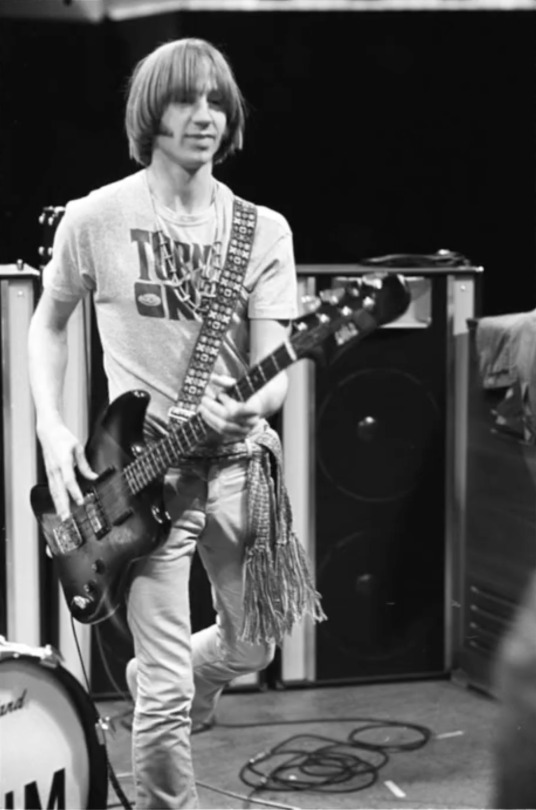
Photo (from Salt Lake City in May 1968) by Henry Diltz.
The following ad appeared in The Berkeley Gazette on May 24, 1968: “PETER TORK of THE MONKEES DAVID CROSBY of THE BIRDS [sic] STEVE STILLS of THE BUFFALO SPRINGFIELD Plus many other guest celebrities will perform at the [Eugene] McCARTHY FOR PRESIDENT RALLY Saturday, May 25, 8:30 p.m. at the Berkeley Community Theater” As yet, I haven’t been able to find any additional details. But, on a political note… “You said that they were the funniest, zaniest, most lovable guys around. Now I’m a believer, too! Wouldn’t you be, too, if you had danced backstage with Peter Tork? Frankly, we tough old newspaper people weren’t prepared for the naturalness and charm of the whole Monkee troupe. […] Were the Monkees ‘caged’ in a dressing room waiting for their act? Not on your life! Peter Tork was leaping around behind the curtain like a wild, free thing. His strawberry-blonde hair was flowing in the air. Peter is kind of a Huckleberry Finn. And he’s just as gracious as the others. ‘I have to change. I’ll be right back,’ he said politely. […] Peter returned and did a fast dance that seemed like a combination of flamenco, the swim and the old Lakewood bop. Sorry, kids. Your Auntie Jane didn’t keep up too well. ‘It’s a very complex movement,’ Peter consoled me. Peter, who’s had three years at Carleton College in Minnesota, may be light-footed but he’s not lightheaded. He’s fascinated by politics. ‘But I felt cheated by the Pat Brown campaign in Caliornia. All he kept saying was “You don’t want him. You don’t want him” Meaning Reagan. It was so negative,’ he said. What about this impatient youth bit, as recently reported in a national magazine? ‘Yes, and youth has every right to be. The Establishment has been very, very slow in granting some of the basic human needs,’ Peter said. Suddenly, the signal. Peter, [Micky], [Davy] and Mike put their heads together in a football huddle. They muttered something that sounded like ‘Reeba, reeba, scheeba, beeba,’ and darted onstage. You know the rest. ‘What a bunch! I was out with them until six this morning at Otto’s Grotto and they’re gentlemen all the way,’ said American Limousine chauffeur Charles P. Augustine Jr. If you’re still not a believer, check Nancy Larkin, 17, of St. Peter High. Or her aunt, Mrs. Florence Gioitta. ‘We were waiting at the airport to see them. We were the only ones there. It was awfully cold. But the Monkees came right over to us and talked for 15 minutes,’ reported Mrs. Gioitta.” - article by Jane Scott, The Plain Dealer, January 20, 196 “Remember that in the 60's the political officeholders had lost all touch with the needs of the nation…kind of like the Bush administration now. […] Those of us who were truly interested in liberty, fraternity and equality, however, knew we were onto something good and real. What had been called democracy was, and to some extent still is, a pretext for wrapping the will of the greedy and aggressive in a mantle of public acquiescence. Now, the business of wresting power away from those who make a specialty of wielding it will be a long and protracted struggle, with a lot of setbacks along the way. The outlines of the new style of governance are only dimly perceivable, and won't become clear for a long time to come. In the meantime, our job is to practice the principles of fairness and service to the extent possible. One thing is clear: there is a much higher joy in service than there is in acquisition of wealth. (Remember that it isn't money that's the root of all evil, it's the love of money.) Hanging together in brother - and sisterhood is so happy-making you want to sing right out loud. Yeah, I feel the same about those ideas as I did then…in case you couldn't tell. heheheh, Peter” - Ask Peter Tork, 2008 (x)
#Peter Tork#Tork quotes#long read#60s Tork#00s Tork#David Crosby#Stephen Stills#The Monkees#Monkees#et al.#can you queue it
34 notes
·
View notes
Text
The Unofficial Black History Book
Huey P. Newton (1942-1989)

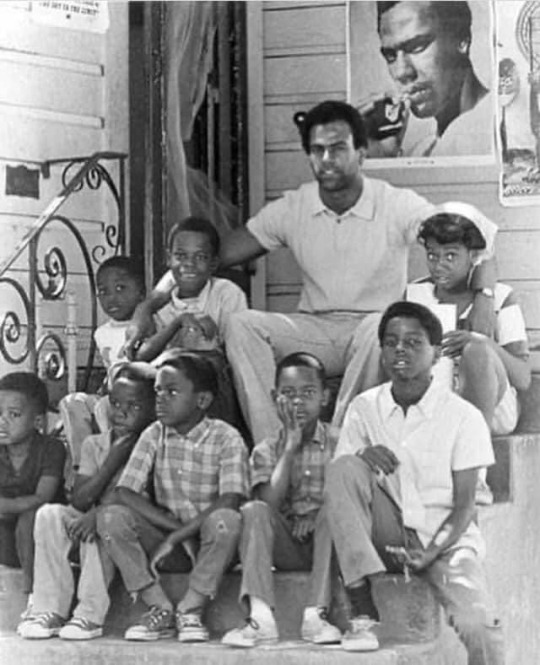
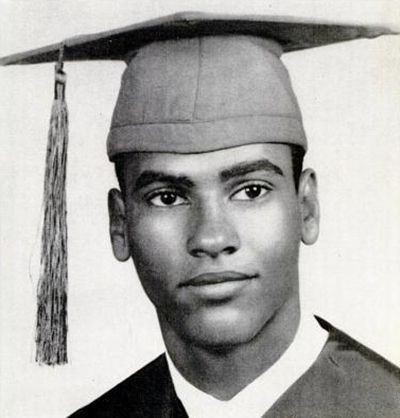
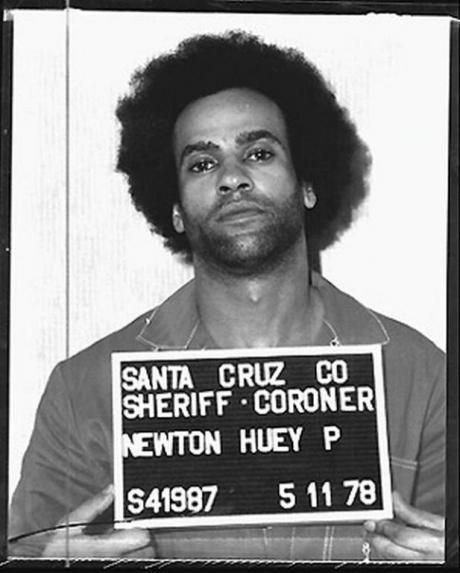

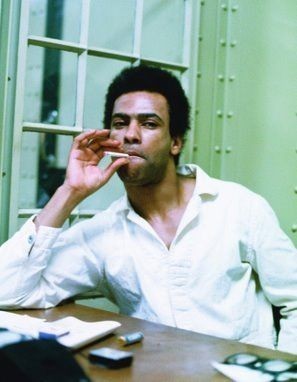
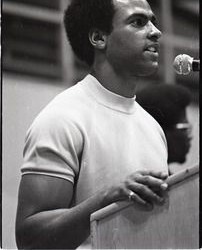
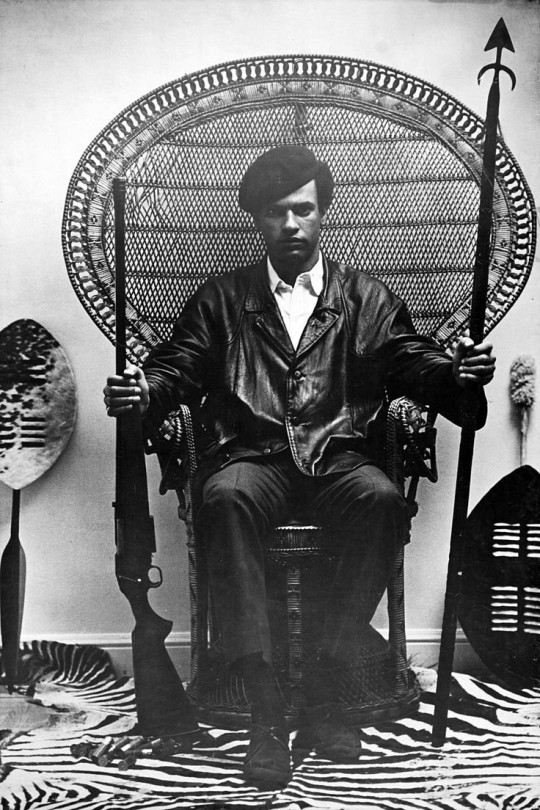
'The Revolution has always been in the hands of the young. The young always inherit the revolution.' - Huey Newton
This is his story.
Huey Percy Newton was born on February 17th, 1942, in Monroe, Louisiana. The youngest of seven children to Armelia Johnson and Walter Newton, he was named after former Governor of Louisiana, Huey Long.
His family relocated to Oakland, California, in search of better economic opportunities in 1945. His family struggled financially and frequently relocated, but he never went hungry or homeless.
Growing up in Oakland, Newton recalled his white teachers making him feel ashamed for being African-American, despite never being taught anything useful. In his Autobiography, ‘Revolutionary Suicide’, he wrote – “Was made to feel ashamed of being black. During those long years in Oakland Public Schools, I did not have one teacher who taught me anything relevant to my own life or experience. Not one instructor ever awoke in me a desire to learn more or to question or to explore the worlds of literature, science, and history. All they did was try to rob me of the sense of my own uniqueness and worth, and in the process nearly killed my urge to inquire.”
He also had a troubled childhood; he was arrested several times as a teenager for gun possession and vandalism.
Huey was illiterate when he graduated from high school, but he taught himself to read and write by studying poetry before enrolling at Merritt College.
During his time there, he supported himself by breaking into homes in Oakland and Berkeley Hills and committing other minor offenses. He also attended Oakland College and San Francisco Law School, ostensibly to improve his criminal skills.
He joined Pi Beta Sigma Fraternity while still a student at Merritt College and met Bobby Seale, a political activist and engineer. Huey also fought for curriculum diversification, the hiring of more black instructors, and involvement in local political activities in the Bay Area.
In addition, he was exposed to a rising tide of Black Nationalism and briefly joined the Afro-American Association, where he studied Frantz Fanon, Che Guevara, Mao Zedong, E. Franklin Frazier, James Baldwin, Karl Marx, and Vladimir Lenin.
Huey had adopted a Marxist/Leninist viewpoint in which he saw the black community as an internal colony ruled by outside forces such as white businessmen, City Hall, and the police. In October 1966, he and Bobby Seale founded The Black Panther Party for self-defense, believing that the black working class needed to seize control of the institutions that most affected their community.
It was a coin toss that resulted in Newton becoming defense minister and Seale becoming chairman of the Black Panther Party. Newton’s job as the Minister of Defense and main leader of the Black Panther Party was to write in the Ten-Point Program, the founding document of the Party, and he demanded that blacks need the “Power to determine the destiny of our Black Community”. It would allow blacks to gain “Land, bread, housing, education, clothing, justice, and peace.”
The Panthers took advantage of a California law allowing people to carry non-concealed weapons and established armed patrols that monitored police activity in the Black Community.
One of the main points of focus for the Black Panther Party was the right to self-defense. Newton believed and preached that sometimes violence, or even the threat of violence, is required to achieve one's goals.
Members of the Black Panther Party once stormed the California Legislature while fully armed in order to protest the outcome of a gun bill.
Newton also established the Free Breakfast for Children Program, martial arts training for teenagers, and educational programs for children from low-income families.
The Black Panthers believed that in the Black struggle for justice, violence or the potential for violence may be necessary.
The Black Panthers had chapters in several major cities and over 2,000 members. Members became involved in several shoot-outs after being harassed by police.
On October 28, 1967, the Panthers and the police exchanged gunfire in Oakland. Huey was injured in the crossfire, and while recovering in the hospital, he was charged with killing an Oakland police officer, John Frey.
He was convicted of voluntary manslaughter the following year.
Huey was regarded as a political prisoner, and the Panthers organized a 'Free Huey' campaign led by Panther Party Minister Eldridge Cleaver. And Charles R. Geary, a well-known attorney who was in charge of Newton’s legal defense.
Newton was found guilty of voluntary manslaughter in 1968 and sentenced to 2-15 years in prison. However, the California Appellate Court ordered a new trial in May 1970. The conviction was reversed on appeal, the case was dismissed by the California Supreme Court, and Huey was acquitted.
Huey renounced political violence after being released from prison. Over a six-year period, 24 Black Panther members were killed in gunfights with the police. Another member, George Jackson, was killed in August 1971 while serving time in San Quentin Prison.
The Black Panther Party, under the leadership of Newton, gained international support. This was most evident in 1970 when Newton was invited to visit China. Large crowds greeted him enthusiastically, holding copies of "Quotations from Chairman Mao Tse-tung," as well as signs supporting the Panther Party and criticizing US imperialism.
In the early 1970s, Newton's leadership of the Black Panther Party contributed to its demise. He oversaw a number of purges of Party members, the most famous of which was in 1971 when he expelled Eldridge Cleaver in what became known as the Newton-Cleaver split over the party's primary function.
Newton wanted the party to be solely focused on serving African-American communities, whereas Cleaver believed the party should be focused on developing relationships with international revolutionary movements. The schism resulted in violence between the factions and the deaths of several Black Panther members. The Black Guerrilla Family (BGF) was one of several factions that had broken away from the main party.
Then, in 1974, Newton was accused of assaulting a 17-year-old prostitute named Kathleen Smith, who later died, raising the charge to murder. Instead of facing trial, Huey fled to Cuba with his girlfriend at the time, where he remained for three years. The key witness in the trial was Crystal Gray. And three Black Panther members attempted to assassinate her before she gave her testimony.
Huey returned to the States in 1976 to stand trial but denied any involvement. The jury was deadlocked, and Newton was eventually acquitted after two mistrials.
In 1978, he enrolled in the History of Consciousness program at the University of California, Santa Cruz, and earned his Doctorate in 1980.
"War Against the Panthers: A Study of Repression in America," his dissertation, was later turned into a book.
On charges of embezzling Panther Party funds, Huey P. Newton was sentenced to 6 months in prison followed by 18 months on probation in 1982.
On August 22, 1989, Newton was assassinated by a member of the BGF, named Tyrone Robinson.
Huey was 46 years old at the time of his assassination. Robinson was convicted of Huey’s murder in 1991 and sentenced to 32 years to life in prison.
His wife, Fredricka Newton, carried on his legacy. 'Revolutionary Suicide,' his autobiography, was first published in 1973 and then republished in 1995.
Huey Newton was not perfect, but he did fight to protect the rights of the Black Community. The rights that we're still fighting for today.
__
Previous
Ruby Bridges
Next
Henry "Box" Brown
___
My Sources
#huey p newton#black community#the unofficial black history book#black activism#black history#black female writers#black history matters#black history is american history#black stories#black tumblr#black culture#history#writers on tumblr#writerscommunity#black power#black consciousness#black liberation#learn your roots#learn your history#black leaders#writeblr#black writblr#black writers of tumblr#black history 365#know your history#black panther party
95 notes
·
View notes